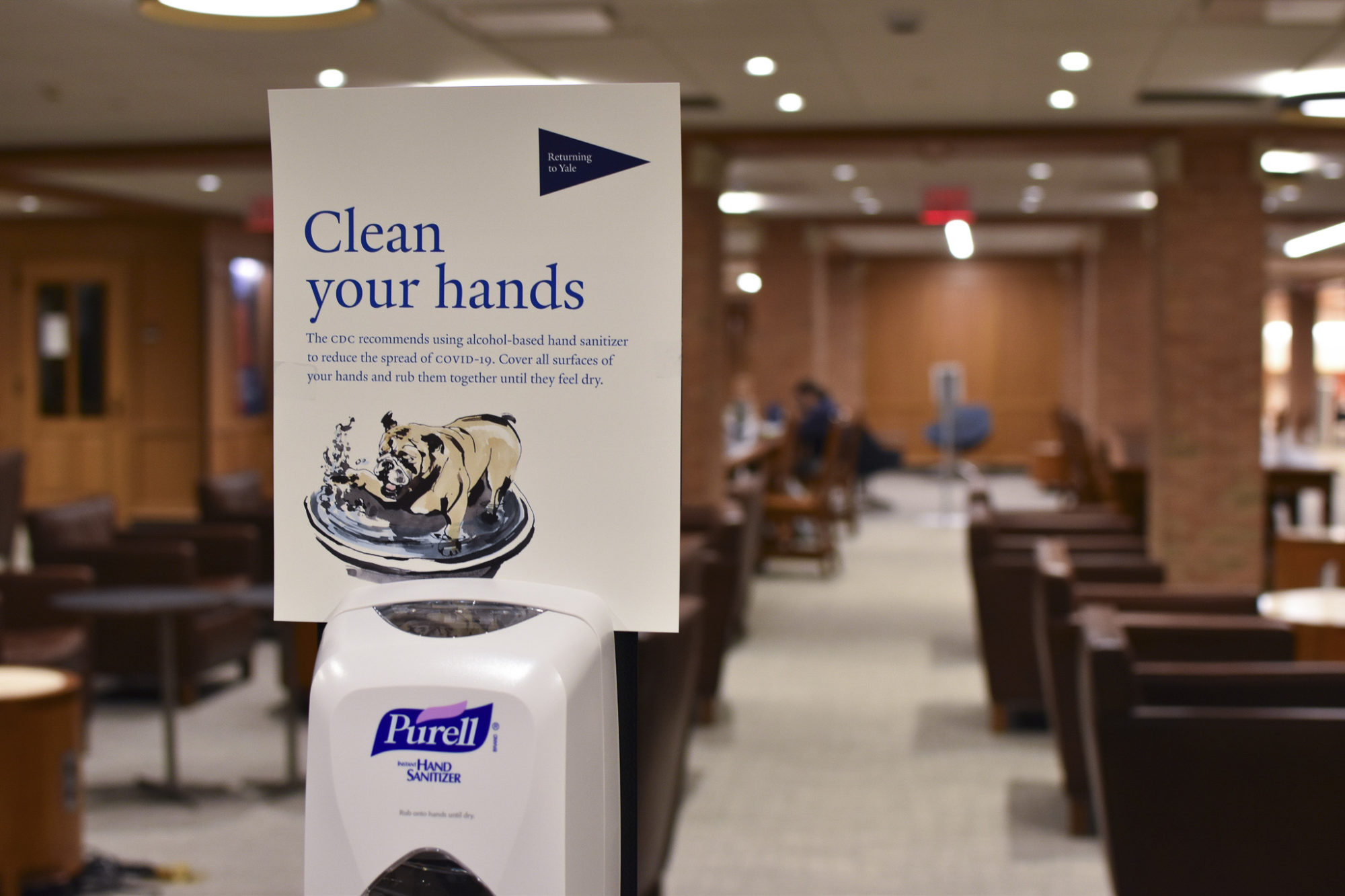
Karen Lin, Contributing Photographer
Yale faculty and staff constitute the second-largest group of coronavirus cases at the University — even though not all are required to participate in regular testing.
Between Aug. 1 and Oct. 20, 17 faculty and staff members tested positive for the coronavirus. The largest group of cases comes from off-campus undergraduate students, 26 of whom have tested positive since August.
While biweekly testing is mandatory for students enrolled in residence both on and off campus, different rules apply to faculty and staff members. According to Chief Medical Officer of Yale Health Jennifer McCarthy, there is a group of high-contact staff who interact closely with students in congregate settings, such as residential colleges, who were identified as the highest risk for transmission. As a result, they are tested once a week. But other staff members who do not fall under that categorization are tested on a voluntary basis, McCarthy said. The same applies to members of the Yale faculty. But some staff members shared concerns with the News over the lack of a regular testing program.
“All other faculty and staff are encouraged to test,” McCarthy said. “They go right through the link, they schedule an appointment that’s convenient for them and they get their asymptomatic testing.”
Chief Executive Officer of Yale Health Paul Genecin told the News that faculty members are also encouraged to use testing not as an alternative to safety precautions, such as social distancing, mask-wearing and hand-washing, but rather as a complement to these measures.
“Testing is an adjunct, it’s not a plan in itself,” Genecin said.
The News interviewed two staff members who are both required to test weekly due to their proximity to other people. While both felt as though their weekly tests were a smooth experience, they expressed concern about the uneven testing requirements for all staff members.
Brandon Felder currently works at the Davenport College testing center, though normally he is a cook’s helper in Grace Hopper College. Even though he is tested weekly, he told the News that he is not sure that is enough.
“I don’t know what Yale should do, I just feel like Yale should do more,” Felder said.
He said that workers are concerned that even if they are not working directly next to an infected person, they could still be in close proximity to a COVID-positive individual, especially for those with jobs like Felder’s, where social distancing is hard.
Shakilah Phillip works for Yale Hospitality and Catering as a driver and undergoes mandatory weekly testing. Similar to Felder, she feels as though the testing itself is not the issue — rather, it is the lack of consistent testing that causes problems.
Phillip added that Yale does not tell her whether or not her driving destinations have positive cases, and she often obtains this information through word of mouth.
“[Yale] shouldn’t tell us who it is,” she told the News. “But we should be warned that this location has positive testing, so we should be able to take that extra precaution.”
Valerie Horsley — an associate professor of molecular, cellular and developmental biology, an associate professor of dermatology and a Faculty of Arts and Sciences Senator — told the News that faculty who are in New Haven are eligible for a weekly voluntary testing program.
Because Horsley works in a lab, she has been advocating for mandatory testing, especially for the graduate students and science faculty who, like her, are in person and do not participate in the same level of mandatory testing as undergraduates.
“So far we haven’t had any outbreaks or anything in the labs.” Horsley said. “But we wouldn’t know they are there.”
She added that the testing site on Science Hill recently closed, making it more difficult for faculty who work there to get tested.
McCarthy pointed out that while routine testing is not mandated for faculty and staff, it is freely available to them.
“We have the voluntary, but very available testing for other faculty and staff, it’s not limited,” McCarthy said.
According to McCarthy, after the recent outbreak within the men’s hockey team, even faculty and staff who do not hold high-risk jobs decided to take advantage of the available testing. She told the News that anyone who might have been exposed to the virus is encouraged to get tested.
When asked about the significant incidence of cases among faculty and staff, Genecin described the case distribution as “miscellaneous” and “rather sporadic.”
According to Genecin, evidence of large numbers of people becoming infected together has not been observed, with the only exception being the outbreak within the hockey team.
“We’re not seeing outbreaks and case links,” he said. “Anecdotally, one person will have attended a wedding, one person will have had a child visit from school and was infected, things like that, we are not getting any clear evidence of community spread in our testing but rather we’re really finding these one-off cases and sometimes a limited amount of spread.”
As of Thursday, a total of 77,638 COVID-19 tests have been administered by Yale.
Madison Hahamy | madison.hahamy@yale.edu
Maria Fernanda Pacheco | maria.pacheco@yale.edu







